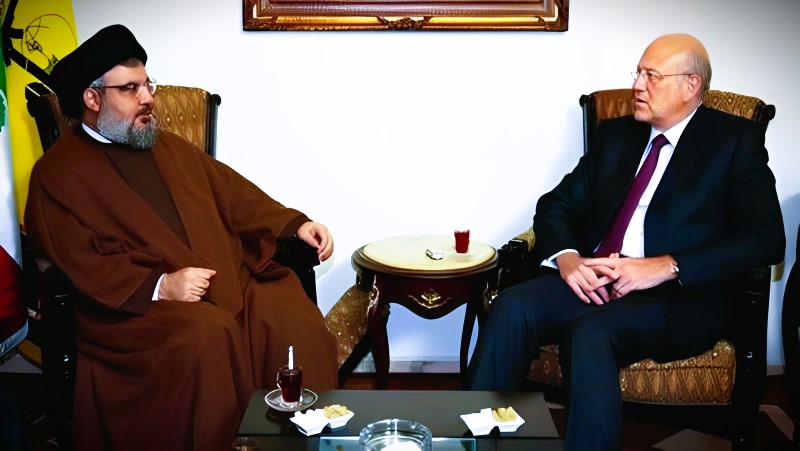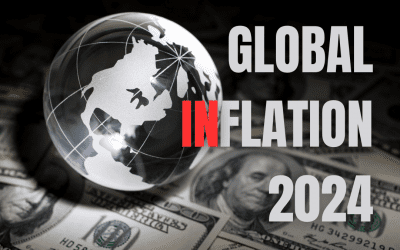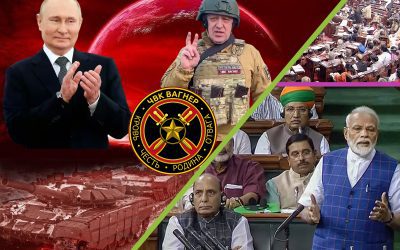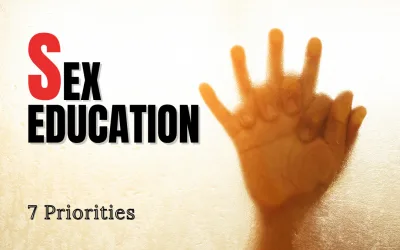During the past week, the Lebanese-Israeli border has been raging, with growing casualties and a war of words fueling fears that a wider conflict could break out between Israel and Hezbollah, an Iranian-backed Lebanese group. According to a first responders organization affiliated with the Hezbollah-allied Amal Movement, two people were killed by Israeli strikes on Monday in south Lebanon.
According to the Israel Electric Company, one employee died of his wounds on Monday after being wounded by a Hezbollah missile attack on Sunday. Hezbollah and Israeli forces have exchanged gunfire ever since Israel’s ally, Hamas, declared war on the former on October 7.

Since Israel and Hezbollah fought a month-long war in 2006, the exchanges mark the deadliest violence at the border. More than 70 Hezbollah fighters and ten civilians have been killed in Lebanon, and 10 people, including seven troops, have been killed in Israel. Many more have fled the shelling on both sides.
It has been mostly confined to a small area on either side of the border until now. As it seeks to crush Hamas in the Gaza Strip, Israel has said it doesn’t want war on its northern front, while sources familiar with Hezbollah’s thinking say that its attacks have been intended to keep Israeli forces busy while avoiding all-out war.
As part of its efforts to deter Iran from getting involved, the U.S. has sent two aircraft carriers to the area. However, that hasn’t stopped Hezbollah and Israel from escalating their rhetoric.

Sayyed Hassan Nasrallah, Hezbollah’s leader, said on Saturday his group will “remain active” in Lebanon, adding that its operations were improving “quantitatively.”
According to Netanyahu, Hezbollah should not seek to broaden its attacks now because they are playing with fire. “Hezbollah should not try us, since we have only shown a little of our power,” he said.
Yoav Gallant, Israeli Defence Minister, said at a news conference on Saturday that Nasrallah had crossed Israel’s red line if he heard Israel had attacked Beirut.”
Tension Escalates
Caretaker Prime Minister Najib Mikati spoke with Al Jazeera on Sunday and said he had been reassured by Hezbollah’s “rationalism” so far. “We have not lost our sense of self-control, and Israel needs to cease its provocations in the south.,” he said.
Four years into a financial crisis that has impoverished many Lebanese and paralyzed the state, Lebanon cannot afford another war, four years after the 2006 war. During the 2006 war, Hezbollah killed 1,200 civilians in Lebanon, mostly civilians, and 157 Israelis, mostly soldiers. Hezbollah has always been seen by Israel as the greatest threat that lies outside its borders.

According to the U.S. Defence Secretary Lloyd Austin, Israel will continue to concentrate on Hezbollah’s threat “for the foreseeable future” and described the violence as “tit-for-tat exchanges between Lebanese Hezbollah and Israeli forces in the north”.
He told reporters in Seoul, “And certainly no one wants to see another conflict break out in the north on Israel’s border in earnest,” even though he acknowledged that it was difficult to foresee what may occur. “I can definitely see a wider escalation but I am not sure about a full conflict that nobody wants,” stated Carnegie Middle East Center’s Mohanad Hage Ali.
“We don’t want a one on one standoff, and I think the United States is leading the way by keeping things in check,” he said.
Economic Crisis
Not everyone is afraid of what would happen in a war. Some Lebanese, fed up with the country’s economic predicament, believe that things can’t get any worse. The World Bank ranked Lebanon’s economic collapse in 2021 as one of the greatest crises to hit the country since the 1800s. The International Monetary Fund stated in June of last year that the political elite in Lebanon was opposing important economic changes because of “vested interests.”

In the past year, the value of Lebanon’s currency has decreased by around 98%, while the country’s GDP has experienced a 40% decline. Standing at a Beirut transport hub, Mohamad Aziz exclaimed, “Who cares about a war?” “We don’t have enough money to eat, drink, or survive.”








0 Comments